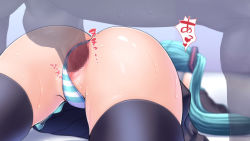
Edit | Leave a Comment | Favorite
User Comments:
Anonymous commented at 2012-03-04 00:51:09 » #1015311
this is pissing me off! there are 5 of these images and 4 have the same asian characters in each so how the f*ck are their FOUR different f*cking translation! If you don't speak fluent Japanese then don't fuck with the translation you fucking assholes
 13 Points
13 Points
 Flag
Flag
this is pissing me off! there are 5 of these images and 4 have the same asian characters in each so how the f*ck are their FOUR different f*cking translation! If you don't speak fluent Japanese then don't fuck with the translation you fucking assholes
Anonymous commented at 2012-03-04 01:06:00 » #1015319
Speaking as someone fluent in Japanese *, I can tell you that it is a very subtle language. Something as slight as the amount of vaginal fluid a woman is secreting or the presence of a censor bar can dramatically change the meaning of a sentence. Unfortunately, it is widely considered rude to ask a woman about the current state of her vagina in public, so Japanese men typically have great difficulty understanding women.
* This is a total lie.
 21 Points
21 Points
 Flag
Flag
Speaking as someone fluent in Japanese *, I can tell you that it is a very subtle language. Something as slight as the amount of vaginal fluid a woman is secreting or the presence of a censor bar can dramatically change the meaning of a sentence. Unfortunately, it is widely considered rude to ask a woman about the current state of her vagina in public, so Japanese men typically have great difficulty understanding women.
* This is a total lie.
plummdrop commented at 2012-03-04 13:05:51 » #1015675
Also, anon 1. It's important to note that since Japanese doesn't translate directly very well, you often have to pick something that basically means the same but sounds more natural. Because English has several different ways to say one thing in most cases, several translations are usually possible.
Anyway, I have a Japanese friend who lives in and was raised in Japan. I have her help me with my translations, so I can assure you this is correct.
 3 Points
3 Points
 Flag
Flag
Also, anon 1. It's important to note that since Japanese doesn't translate directly very well, you often have to pick something that basically means the same but sounds more natural. Because English has several different ways to say one thing in most cases, several translations are usually possible.
Anyway, I have a Japanese friend who lives in and was raised in Japan. I have her help me with my translations, so I can assure you this is correct.
Anti_Gendou commented at 2012-03-06 14:42:48 » #1017452
All of the translations are still vaguely similar for the exact same text. Which is common with translations of any language because few words have only one foreign equivalent.
Though the "I want you to put" TL notes on Gelbooru most certainly seem to be missing a few words. Unless Mugi really was leaving words out.
 2 Points
2 Points
 Flag
Flag
All of the translations are still vaguely similar for the exact same text. Which is common with translations of any language because few words have only one foreign equivalent.
Though the "I want you to put" TL notes on Gelbooru most certainly seem to be missing a few words. Unless Mugi really was leaving words out.
VVayfarer commented at 2012-04-14 12:16:15 » #1049180
The current translation isn't the most correct one at least---入れて欲しいの/'irete hoshii no' means "I want you to put it in me!"
@plummdrop - To be able to create the best translations, it isn't enough to have two native speakers who understand each other's languages at an intermediate level; you really need someone who is proficient (not just fluent) in both.
@Anon4 - "Haireru"/入れる -also written as 這入れる- would mean "to be able to enter" ("To enter" is simply "hairu"/入る/這入る); "Ireru" on the other hand only means "To put in" in this context.
 1 Points
1 Points
 Flag
Flag
The current translation isn't the most correct one at least---入れて欲しいの/'irete hoshii no' means "I want you to put it in me!"
@plummdrop - To be able to create the best translations, it isn't enough to have two native speakers who understand each other's languages at an intermediate level; you really need someone who is proficient (not just fluent) in both.
@Anon4 - "Haireru"/入れる -also written as 這入れる- would mean "to be able to enter" ("To enter" is simply "hairu"/入る/這入る); "Ireru" on the other hand only means "To put in" in this context.
VVayfarer commented at 2012-04-14 13:11:09 » #1049212
//Actually I made a mistake there. The most correct translation is:
"(I) want (you) to put (it) in"
where the words in brackets are deduced from context since without them the sentence wouldn't work structurally (the 'you' is the sole exception to this). While the "me" could very well be omitted in English -just like in Japanese- the "you" should be left there to make the text congruent with the pic.
In Japanese, pronouns are left out way more often than in English; the text here basically means "I want (insert sb here) to put it in" but the "you" is added simply because otherwise we'd have to choose a lower probability candidate (e.g. "I want him to put it in", "I want someone to put it in").
 1 Points
1 Points
 Flag
Flag
//Actually I made a mistake there. The most correct translation is:
"(I) want (you) to put (it) in"
where the words in brackets are deduced from context since without them the sentence wouldn't work structurally (the 'you' is the sole exception to this). While the "me" could very well be omitted in English -just like in Japanese- the "you" should be left there to make the text congruent with the pic.
In Japanese, pronouns are left out way more often than in English; the text here basically means "I want (insert sb here) to put it in" but the "you" is added simply because otherwise we'd have to choose a lower probability candidate (e.g. "I want him to put it in", "I want someone to put it in").
plummdrop commented at 2012-04-22 13:53:47 » #1055294
@VVayfarer: That would be more of a direct translation if you include brackets. When things are officially translated, we don't tend to say "well Japanese is different, let me explain.." The translator knows this, but the people reading the translation don't need to.. And beside that, it's basically exactly what I put. I never said my translation was "the best", but merely that it was accurate. And it is. (Also "the best" translation is subjective most times anyway..)
And beyond that, my Japanese friend is an English teacher in Japan and went to college in America. I'm pretty sure her English is fluent AND proficient. I can have normal conversations with her over skype without dumbing down at all; I speak to her as I do any other friend.
 1 Points
1 Points
 Flag
Flag
@VVayfarer: That would be more of a direct translation if you include brackets. When things are officially translated, we don't tend to say "well Japanese is different, let me explain.." The translator knows this, but the people reading the translation don't need to.. And beside that, it's basically exactly what I put. I never said my translation was "the best", but merely that it was accurate. And it is. (Also "the best" translation is subjective most times anyway..)
And beyond that, my Japanese friend is an English teacher in Japan and went to college in America. I'm pretty sure her English is fluent AND proficient. I can have normal conversations with her over skype without dumbing down at all; I speak to her as I do any other friend.
1 2





